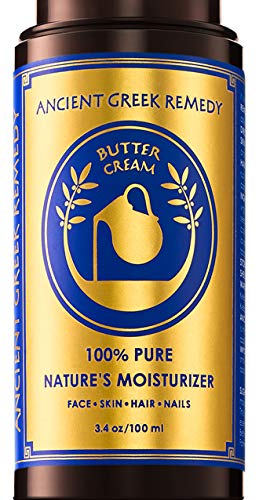Seborrheic dermatitis is a skin condition that is caused by an overproduction of skin oils and is usually characterized by redness, scaling, and itching. Castor oil is a natural lubricant and is used as a remedy for many ailments.
Castor oil is commonly found in many skin care products. In small quantities, blended with other soothing ingredients, you can use castor oil safely even if you have seborrheic dermatitis. However, don’t ever use pure castor oil and definitely don’t use it in large quantities when you have seborrheic dermatitis as it can increase oiliness, clog pores and aggravate your condition.
Use oils like MCT oil, squalane oil and jojoba oil instead.
Let’s take a deep dive:
What is castor oil?
Castor oil is a plant oil that has been used for centuries to treat a variety of ailments. It’s obtained by pressing the seeds of the castor oil plant, and the pale-pressed variant is known as virgin castor oil. Always look for that oil with the USDA Certified Organic label, which signifies it doesn’t contain any synthetic ingredients.
Castor oil has many benefits, including aiding digestion, relieving constipation, and helping with arthritis issues. Combined with other ingredients, it can also be effective in treating seborrheic dermatitis of the scalp. Make sure you choose castor oil products that are free of harsh chemicals and irritants.
What are the benefits of castor oil for seborrheic dermatitis?
Castor oil has been shown to have a number of benefits for the scalp and hair. It can increase blood flow to the scalp, which promotes healthy hair growth. Castor oil can also moisturize a dry, irritated scalp.
The oil has antibacterial and antifungal properties which reduces dandruff and cleanses the scalp of Malassezia that contribute to seborrheic dermatitis. Castor oil contains omega-6 fatty acids which is essential for hair growth and reduces inflammation in the hair follicle.
Even though it is commonly used, there is actually very little evidence to back up claims that castor oil by itself can improve seborrheic dermatitis. However, because of its anti-inflammatory properties, it’s possible that castor oil could help improve SD.
Having said that, never use castor oil by itself. It’s way too heavy and it doesn’t absorb well into the skin. The oil just sits on the surface, making your skin oily and itchy. In fact, due to its high content of ricinoleic acid, the pure oil can be very irritative on the skin.
Some people swear that Jamaican black castor oil helps their dandruff. I don’t agree but take a deep dive into the evidence in this article.
There are only a few pure oils I would put on my face and one of them is MCT oil.
Why castor oil can aggravate seborrheic dermatitis
https://www.youtube.com/watch?v=t6t8N8YKMCo
Castor oil is a great natural remedy for seborrheic dermatitis, but it’s important to use it correctly. If you have oily hair, castor oil may make your dandruff worse. Malassezia is the fungus that causes dandruff, and an oily scalp provides an ideal environment for it to flourish.
If you’re using castor oil to treat dandruff, be sure to apply it only to your scalp and not your hair. You should also avoid leaving it on for more than 20-30 minutes at a time. Only use certified organic and cold-pressed castor oil:
If you are looking for hair oils to combat dandruff, read my review of the best ones.
For use on your face, I don’t recommend castor oil at all. It can actually irritate your skin and increase inflammation. If you are suffering from seborrheic dermatitis, it is best to avoid using castor oil altogether or to use it sparingly.
I also don’t recommend using other oils like olive oil and argan oil on your face. Consider jojoba oil or squalane oil instead.
Side effects of castor oil
Castor oil has been used for centuries as a natural remedy for various ailments. While it is generally safe to use, there are some potential side effects that you should be aware of.
Anecdotal evidence suggests that using products containing castor oil is generally safe for dandruff and SD. However, it’s important to note that everyone reacts differently, so you should always test the product out first before using it regularly. Castor oil should be mixed with other oils like jojoba or olive oil before applying it to your scalp to reduce your risk of adverse reactions.
There is no evidence that consuming castor oil can improve seborrheic dermatitis. If you’re ingesting castor oil, remember that it can cause gastrointestinal problems like cramps, diarrhea, and vomiting. It can also have negative impacts on your liver and kidneys if consumed in high doses over a long period of time.
One rare but scary side effect of applying castor oil to the scalp is hair felting. This occurs when the oil causes long hair to suddenly become matted together. There is no cure for hair felting. The only solution is to cut off the affected hair.
To wrap up
Castor oil is a known aggravator of seborrheic dermatitis. While it may offer some benefits for other skin conditions, it is best to avoid using it if you have seborrheic dermatitis. If you are considering using castor oil and have seborrheic dermatitis, be sure to only use it in small amounts or blended with other soothing ingredients.
 Check it out on Amazon
Check it out on Amazon Check it out on Amazon
Check it out on Amazon
Pingback: Olive Oil For Seborrheic Dermatitis: How To Use It And Why
Pingback: Best carrier oils for seborrheic dermatitis
Pingback: Seborrheic dermatitis: common oils to avoid
Pingback: Does Jamaican black castor oil help seborrheic dermatitis?